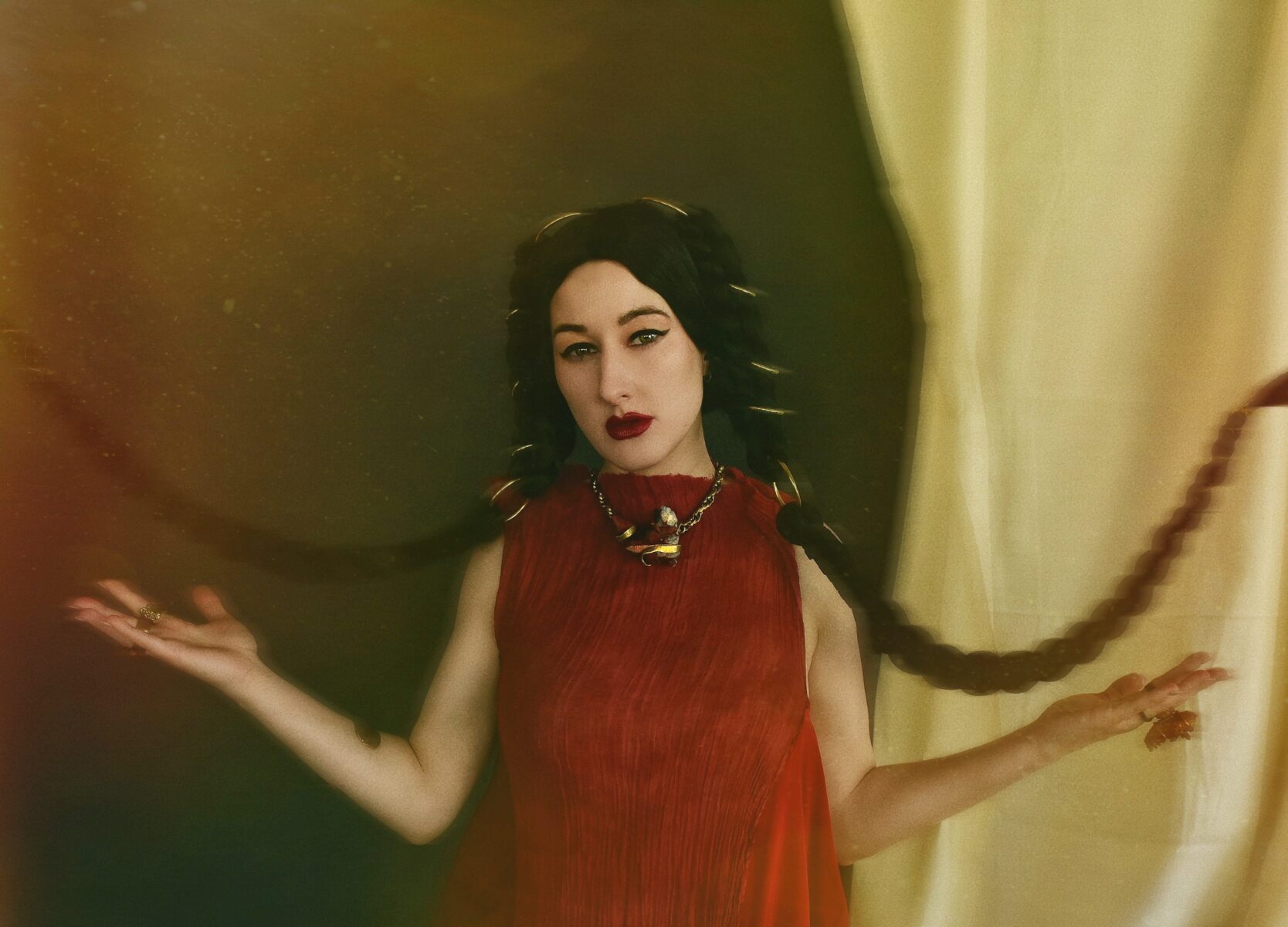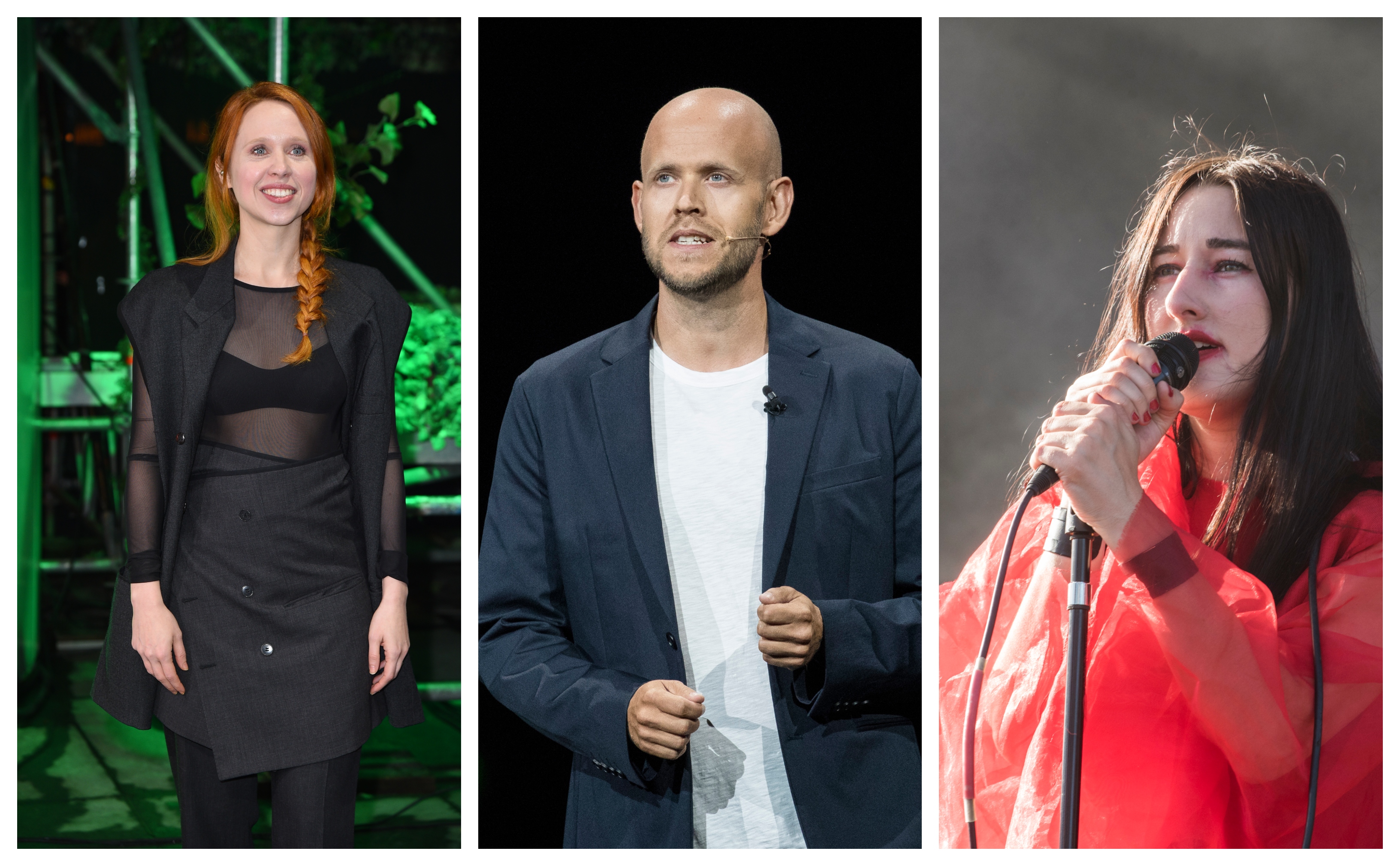Book Club is a new monthly series from Speedy Ortiz’s Sadie Dupuis, exploring the literature that inspires some of our favorite musicians. Whether it’s a music biography that got them through the slog of tour, the poetry collection that eked into their most poignant lyrics, or the novel that sparked a rock opera, we’ll get to the bottom of it so you can add it to the top of your book stack. This month, we speak to Nika Roza Danilova, the songwriter and producer behind Zola Jesus.
Over her 14-year musical career, Zola Jesus’ Nika Roza Danilova has recorded and toured six ethereal albums touching on baroque pop, industrial goth, and art rock, including this June’s Arkhon. As I discovered while researching for our conversation, almost every interview she’s given along the way has included a handful of book recommendations. She was barely 13 when she first encountered Émile Zola, the French naturalist writer whose surname provides half of her stage name. At that same age, Danilova became deeply inspired by Alan Watts, a countercultural philosopher and theologian. When I point out how beyond-her-years those early favorites were (and that at 13, I was still working my way through the Animorphs series), she agrees, crediting some great libraries she hung around in her Wisconsin elementary and middle schools.
“It’s interesting following what I was reading as a kid, and how it turned me into kind of a weirdo,” she laughs, remembering a teacher who told her she was going down “a very bad path” based on the literature she gravitated toward: Jules Vernes’ Twenty Thousand Leagues Under the Sea, the oeuvre of J.D Salinger, and what Danilova describes as “the gateway for everything” (Burroughs, Kerouac, and the rest of the Beats).
Where has that “bad path” of reading led her these days? A whole lot of anticapitalist theory, books on Zen, and a slew of contemporary mystics, with a slight preference to British writers (“they have such a deep history of pagan practices,” she explains). But her interests are hydra-like, and Danilova often finds herself falling down several new rabbit holes of scholarship all at once. She reads every day to keep up with her voracious fascinations, often a few titles simultaneously. And though she loves finding books secondhand, she’s had to switch to an e-reader to keep up. “It’s been such a journey trying to find the right digital format,” says Danilova. “But the way I read, I have to jump around a lot.”
At the end of our phone call, I ask Danilova if she ever takes a break from her heady reading list and picks up what others might characterize as a beach read. “Reading is my outlet to dive deep,” she tells me. “I take out all my trash needs on TV, not much on trash reads — other than scrolling through Twitter.” Her plans for the rest of the afternoon, which she’s spending at a bucolic Virginia farmhouse on a day off from Arkhon’s release tour? Chipping away at her master reading list of enthralling subjects, of course. “Tour is the best time for me to read because I have so much idle time,” she says, greatly excited for a day alone with her well-cultivated library.
SPIN: Your reading list goes deep into dedicated areas of study. How do you decide upon new avenues of learning?
Nika Roza Danilova: I’ll just get really into a subject. Today I was reading about the symbolic, metaphysical, and magical history of music throughout the ages. There’s a writer named Gary Tomlinson — I’m reading a couple of his books right now. Healing Songs by Ted Gioia touches on the healing and suggestive powers of music — the psychological, philosophical and metaphysical connection music plays in people’s lives. So I’ll try to find books that answer questions I have, and that opens me up to whole worlds.
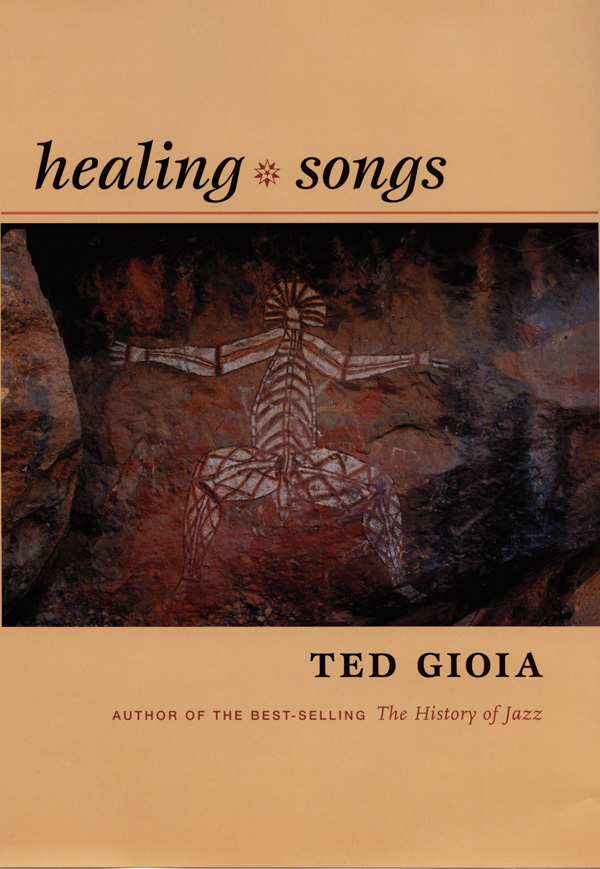
Do you read music histories, or do you mostly enjoy reading about it from a philosophical perspective?
More philosophical, but I loved the Maria Callas book that Arianna Huffington wrote. There are particular musicians, like Maria Callas, where I want to read everything about her life — I want to know every hour of her life that she was alive! But I mostly get interested in big, abstract, theoretical things.
In the Zola Jesus song “Veka,” you incorporate a poem by Anna Akhmatova, “‘Is this century worse than those before?'” What other poets do you read?
Aase Berg wrote With Deer and Dark Matter, two poetry books. I love her work, it’s kind of grotesque. Tomaž Šalamun, a Slovenian poet, is another I love. It’s super random stuff. I’ll be like, “Oh, this is rad!” and then wait for their next one.
Do any of your other songs explicitly cite a piece of literature?
In terms of my own scholarship, the song “Sewn” and the album Arkhon were greatly influenced by gnosticism and shamanism, and I’m reading the book Shamanism: Archaic Techniques of Ecstasy by Mircea Eliade. It’s a really deep exploration of shamanism in different cultures and the ways it impacts communities and societies at large. Reading about the gnostics and different sects of mysticism and spirituality was very inspiring — and early civilization spiritual practices in ancient Egypt. [There’s] The Gnostic Gospels by Elaine Pagels, and The Red Book by C.J. Jung was another one I was really inspired by while making Arkhon. But instead of referencing things from the reading, it’s more that I become inspired by the content and that has inspired me creatively, more indirectly.
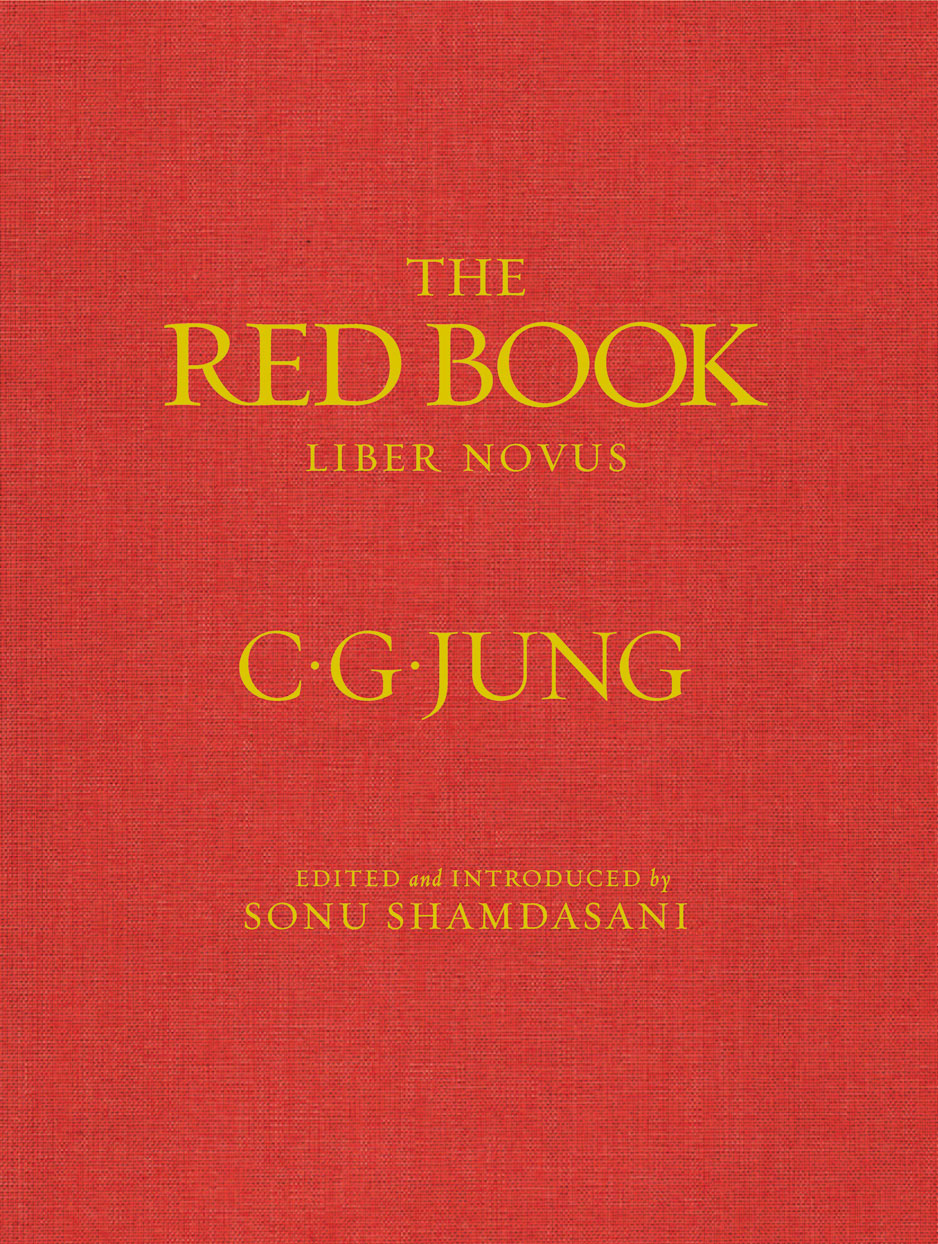
Has Jungian literary theory changed your approach as a reader?
Yeah. In terms of how I navigate my conscious world, it’s so informed by Jung in that I allow my unconscious to be more actively participating in my conscious life. When I’m reading, I’ll read less actively and in a way where I’m taking in a lot of information passively. I don’t know how to explain it, but Jung has inspired me in so many ways, mostly in the value of the unconscious.
You mentioned the British occultists Dion Fortune and Peter Grey as influential on Arkhon, and Fortune was also a scholar of Jung. Do you draw a connection between their literary outputs?
Every author or writer or thinker I like seems connected in some way. Philip K. Dick had The Exegesis, which I loved, and since I was young I’ve been very inspired by Philip K. Dick. He had a lot in common with Jung through his mystical experiences, and he was inspired by Jung as well. And Dion Fortune was into Jung but also into mysticism and magic. All the writers I like and am drawn to and feel an affinity with, they all understand a more metaphysical relationship to life, which makes them all connected in an inextricable way.
Philip K. Dick is a longtime favorite of yours. Has your perspective on his books changed over time?
I’ve been meaning to re-read him because now it’s been 10 years and I’m overdue for it. But I’m also nervous because he plays such an important part in my own history of how my world was shaped as a young reader. I’m afraid of losing the magic of when I devoured all of his work. Even just watching adaptations of his work reminds me of his genius — that he can use words to elaborate on the worlds he’s creating is already such a feat. He’s kind of miraculous for me. I want to re-read Ubik because that’s always been my favorite.
It’s hard when you have so many interests — you don’t want to dedicate reading time to things you’ve already read.
Oh, man. My list is already so long! I haven’t been reading a lot of fiction lately, much more critical theory and non-fiction. A lot of Byung-Chul Han. Psychopolitics was one I read during Arkhon, and now I’m reading In the Swarm. [Deleuze and Guattari’s] Anti-Oedipus is something I’ve been working through. I go through a lot of Hannah Arendt, and her books on totalitarianism. Those are kind of the big ones.
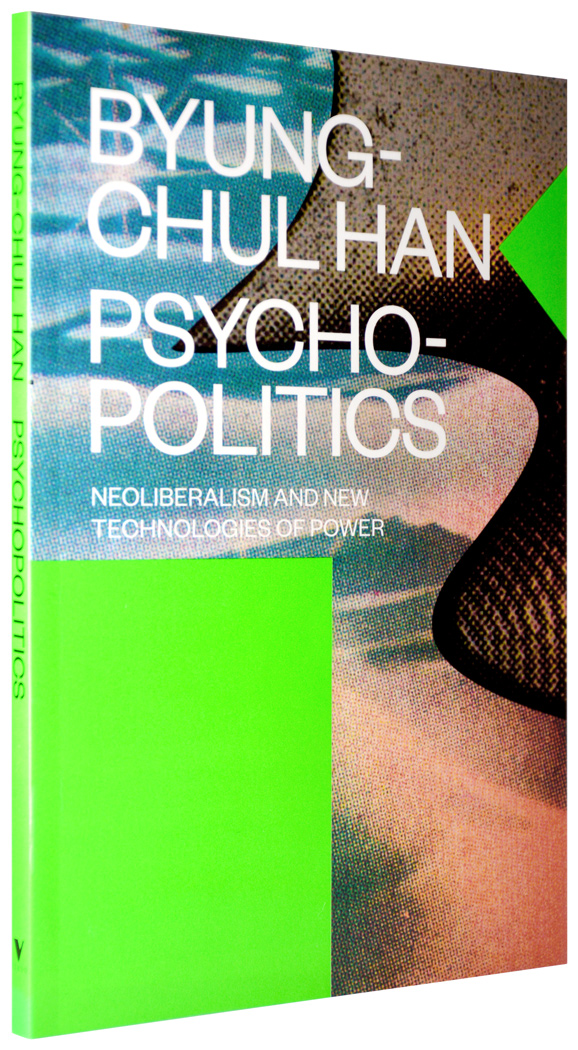
So many books on magic and the occult; I’m kind of devouring those. There’s this writer Josephine McCarthy who’s a British magician and works in the realm of visionary magic. At the time of making Arkhon, I was reading her book Magic of the North Gate. I’m currently reading Magical Healing. And she has a whole course called Quareia, which teaches you very methodically how to do visionary magic. Getting really into her and then getting into Jung and active imagination stuff, it’s been a heady couple years. Then books on Rinzai Zen: I have a Rōshi [Meido Moore] who’s based in Wisconsin who wrote The Rinzai Zen Way and Hidden Zen, and those are both books on the Rinzai Zen tradition.
The last really good sci-fi book I read was The Blizzard by Vladmir Sorokin, a Russian sci-fi writer. Russians make some of the best sci-fi — the Strugatsky brothers and [Victor] Pelevin as well. There’s so much great stuff.
And you’ve been influenced by Golden age Russian fiction like Gogol and Turgenev. Do you see a throughline between these eras in Russian lit?
Yeah, I think so. Gogol was kind of surreal — and that’s what I like in fiction and non-fiction, this sense of magic and play and inventiveness, where things aren’t realistic or rational, necessarily. Which is why I love Bulgakov — The Master and Margarita is one of my favorite books, because I love reading books where you enter into a world created by the writer which couldn’t necessarily exist in real life.
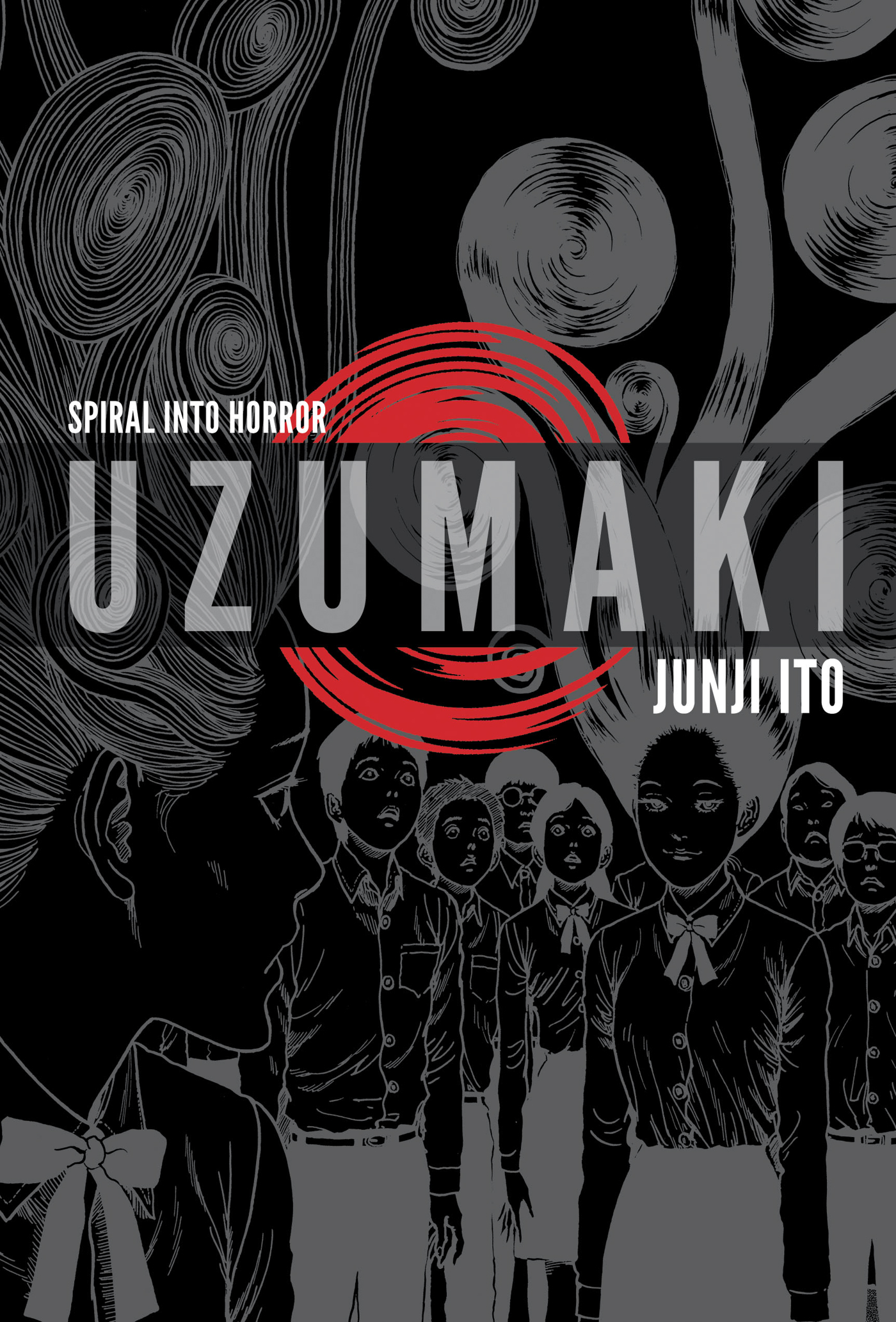
Is that part of your interest in Junji Ito as well? I saw that you’d recently recommended his adaptation of Osamu Dazai’s No Longer Human.
Definitely. His sense of horror is really cool but also so sensational and surreal and bizarre. It’s fun. I love and was blown away by Uzumaki and Tomie. I have all the English translations of all his books. Once you get into the realm of manga, it’s not only about the writing but also the illustration. Sometimes I’ll prefer an illustration but not the story, or the other way around. So it’s been a struggle finding writers like Junji Ito, who uses the format in such a holistic way.
Do you hit up brick and mortar bookshops too?
I used to, but now we’re cloistered on tour and can’t really leave the bubble because of COVID. So I’m having to really rely on my [digital] library. I remember going to The Last Bookstore in L.A. and going to the very top attic into the Russian section and finding a copy of Ice by Vladimir Sorokin. I love going to bookstores on tour because you can hit a lot of spots.

